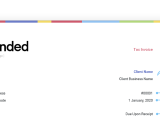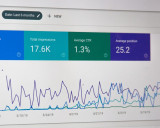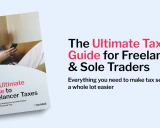
Being a sole trader in NZ
If you’re thinking about starting your own business or freelancing, it’s important to know the ins and outs of being a sole trader. But what exactly is a sole trader, and how do you become one?
Article contents
− +
In this article, we’ll cover the definition of a sole trader, how it differs from other business structures, and how to register as a sole trader in New Zealand. We’ll also look at the pros and cons of being a sole trader, so you can weigh up whether it’s the right business structure for you.
What is a sole trader?
A sole trader is a person who owns a business as an individual. They’re entitled to keep all profits after tax, and they’re legally liable for any debts and losses incurred by their business.
In New Zealand, “sole trader” is also a business structure. It’s the quickest and easiest way to set up a business, and it’s the most common business structure used by freelancers and self-employed people.
“Sole trader” is also a business structure in Australia, the UK, and various EU countries. The comparable term “sole proprietor” is used in North America.
Although less common, there are some other business structures used by freelancers and self-employed people in New Zealand. Let’s compare the key differences between them.
Sole trader vs. company in NZ
Under a sole trader business structure, the person who owns and operates the business trades in their own name, or under a business name. (For example, you may trade under the name ‘John Doe’ or ‘John Doe Photography’.) They do not need to set up a separate legal entity, such as a company.
As a sole trader, you file and pay tax on the income you earn using your personal IRD number. You also have a single New Zealand Business Number (NZBN). The sole trader tax rate in NZ is the same as the personal income tax rate, which is dependent on how much you earn.
A company is a separate legal entity from its owner or owners, and has its own IRD number and NZBN. Under a company business structure, your personal assets are protected from any losses incurred by your business.
Companies in New Zealand pay income tax at 28% on profits – income minus expenses – which is lower than the top marginal income tax rate of 33%. However, it’s more expensive to operate as a company than as a sole trader, and there’s also more admin involved.
Sole trader vs. partnership in NZ
In New Zealand, “partnership” is another business structure you can choose when setting up a business. The main difference between “sole trader” and “partnership” is that a sole trader business is owned by one person, while a partnership business is owned by two or more people.
Under this business structure, business owners decide in a partnership agreement how they’ll share profits, debt and work. This means you aren’t wholly responsible for business debt or other legal issues. It also means you need to consult with your partners when making business decisions.
A partnership has its own IRD number and NZBN. All income earned by the business is distributed between the partners, who then pay income tax on their share.
Can you hire staff as a sole trader in NZ?
Although a sole trader owns a business on their own, they can still hire people to help run their business.
There are two main ways to outsource work as a sole trader. The first is to work with a contractor, which is someone who has an NZBN and manages their own tax and superannuation obligations. Contractors are usually also registered as sole traders.
The second is to hire an employee on a casual, part-time, or full-time basis. Unlike a contractor, who works for themselves, an employee is someone who works for you under an established employment agreement.
As an employer, you are responsible for deducting PAYE tax and paying KiwiSaver on behalf of your employees. If you plan to hire an employee as a sole trader, you will need to register as an employer with Inland Revenue.
The pros and cons of being a sole trader
Still not sure whether being a sole trader is right for you? Here are some of the pros and cons to help you decide.
Pros of being a sole trader
Quick and easy. Becoming a sole trader is the fastest and simplest way to set up a business in New Zealand. It’s also the cheapest option, as there are no legal or registration fees.
Easier tax filing. You only have to file one tax return, rather than submitting both a personal tax return and a tax return on behalf of a company.
Full control of the business. As a sole trader, you control all business decisions and get to keep all profits.
Potential tax benefits. You are taxed at the personal income tax rate, which could be lower than the company tax rate depending on how much you earn.
Cons of being a sole trader
Legal liability. Because you own the business as an individual, you are responsible for debts incurred by the business and any other legal issues. If your business ends up in legal or financial trouble, you and your personal assets are at risk.
Harder to grow. Obtaining loans or attracting investors can be more difficult as a sole trader.
Potential for higher taxes. As a sole trader, you pay a personal income tax rate, which can be as high as 33%. The flat tax rate for companies in New Zealand is 28%.
How to register as a sole trader in NZ
To register as a sole trader, you’ll need to get a New Zealand Business Number (NZBN). You should have the following on hand:
Your personal IRD number
Proof of identity:
o Your New Zealand driver’s licence, or
o Your New Zealand passport
Start your sole trader application here.
When it comes to managing finances and taxes as a sole trader, Rounded makes it easy to track income and expenses and generate invoices with just a few clicks.
Join newsletter
ABOUT ROUNDED
Invoicing and accounting software for sole traders. Get paid faster and relax at tax time.
























